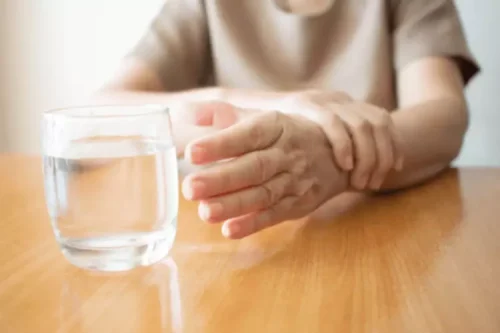
Less frequently, people can develop severe symptoms of alcohol withdrawal syndrome. Individuals experiencing alcohol withdrawal syndrome should receive treatment according to the severity of their condition. Those with very mild symptoms can receive treatment as outpatients but may require the support and help of family and close friends for help. Alcohol withdrawal symptoms can range from being a slight nuisance to extremely uncomfortable. In turn, it can be challenging to learn what helps with alcohol withdrawal. If you have an alcohol dependency, then you’ve likely been using alcohol for some time.

Behavioral Treatment
Your CNS controls your body’s automatic processes like breathing and heart rate. Your CNS is on the other side of the rope pulling back by increasing its own activity to keep things running. Over time, your CNS adjusts and sees that increased activity level as its new normal. If you’re experiencing alcohol withdrawal, your body might be going through an array of uncomfortable physical and mental changes. When you engage in chronic heavy drinking, your brain adapts to the presence of alcohol in your blood to maintain homeostasis (a balanced state). As your brain grows accustomed to higher blood alcohol concentration levels, it starts to rely on alcohol to function properly.
- This is why some people may be hesitant or afraid to quit drinking.
- However, try not to have too many firm expectations, as symptoms can continue for multiple weeks in some people.
- The main ways to prevent alcohol withdrawal are to avoid alcohol altogether or to get professional help as soon as possible if you think you’re developing alcohol use disorder.
- Its mission involves educating, supporting, and empowering people in their pursuit of well-being.
- Individuals experiencing mild symptoms could receive home treatment with the help of close friends and family members.
- Try to mentally connect your alcohol consumption to pain, not pleasure or relief.
- Whether it’s connecting you with the right therapist or supporting you through difficult times, we embrace you as part of our community.
Alcohol Withdrawal Stages and Severity
Patients with mild to moderate withdrawal symptoms without additional risk factors for developing severe or complicated withdrawal should be treated as outpatients when possible. Ambulatory withdrawal treatment should include supportive care and pharmacotherapy as appropriate. Benzodiazepines are first-line therapy for moderate to severe symptoms, with carbamazepine and gabapentin as potential adjunctive or alternative therapies. Physicians should monitor outpatients with alcohol withdrawal syndrome daily for up to five days after their last drink to verify symptom improvement and to evaluate the need for additional treatment.
- It often raises many questions, especially regarding effective strategies for managing symptoms and ensuring safety.
- The production of these neurotransmitters is affected when a person stops or significantly reduces alcohol intake.
- Consuming more than that can lead to liver damage and heart disease, and increase your risk for some cancers.
- Still, try to keep in mind that these symptoms — though uncomfortable — are temporary.
How Much Do I Have to Drink to Experience Withdrawal?
The best ways to prevent severe symptoms after you stop drinking alcohol are close supervision by your doctor and treatment that usually includes benzodiazepines. The treatment aims to help relieve your symptoms, reduce the chance of complications and, if DTs are bad, save your life. Sedatives, usually benzodiazepines, are medications used to treat alcohol withdrawal and DTs. If your symptoms can’t be managed with sedatives, your doctor may prescribe anesthesia so you will be completely sedated until your symptoms end. You may also need intravenous fluids with vitamins and minerals to treat dehydration or bring your electrolytes back into balance. Symptoms of DTs tend to begin soon after you stop drinking alcohol and can happen abruptly.
How is alcohol dependence treated?
You may also receive other medications or treatments for related health issues, like IV fluids for dehydration and electrolyte imbalances or antinausea medicines if you experience vomiting. It’s important to be honest about your alcohol use — and any other substance use — so your provider can give you the best care. Each of these symptoms can increase in intensity is sneezing a sign of withdrawal depending on the severity of the withdrawal. Heavy alcohol use also depletes the body of vital electrolytes and vitamins, such as folate, magnesium, and thiamine. So, treatment may also include electrolyte corrections and multivitamin fluids. Drastic changes in blood pressure and heart rate can also develop, which may lead to a stroke or heart attack.

Signs of a Drinking Problem Alcohol Issues
- It’s hard to pinpoint an exact number for each person because everyone’s different.
- It also provides an overview of the alcohol withdrawal timeline process and when to discuss your drinking with your healthcare provider.
- If you are detoxing at home, anything beyond mild symptoms should trigger you to seek medical help.
- Not surprisingly, most symptoms of withdrawal are symptoms that occur when the brain is overstimulated.

Detox Programs That Help With Alcohol Withdrawal

